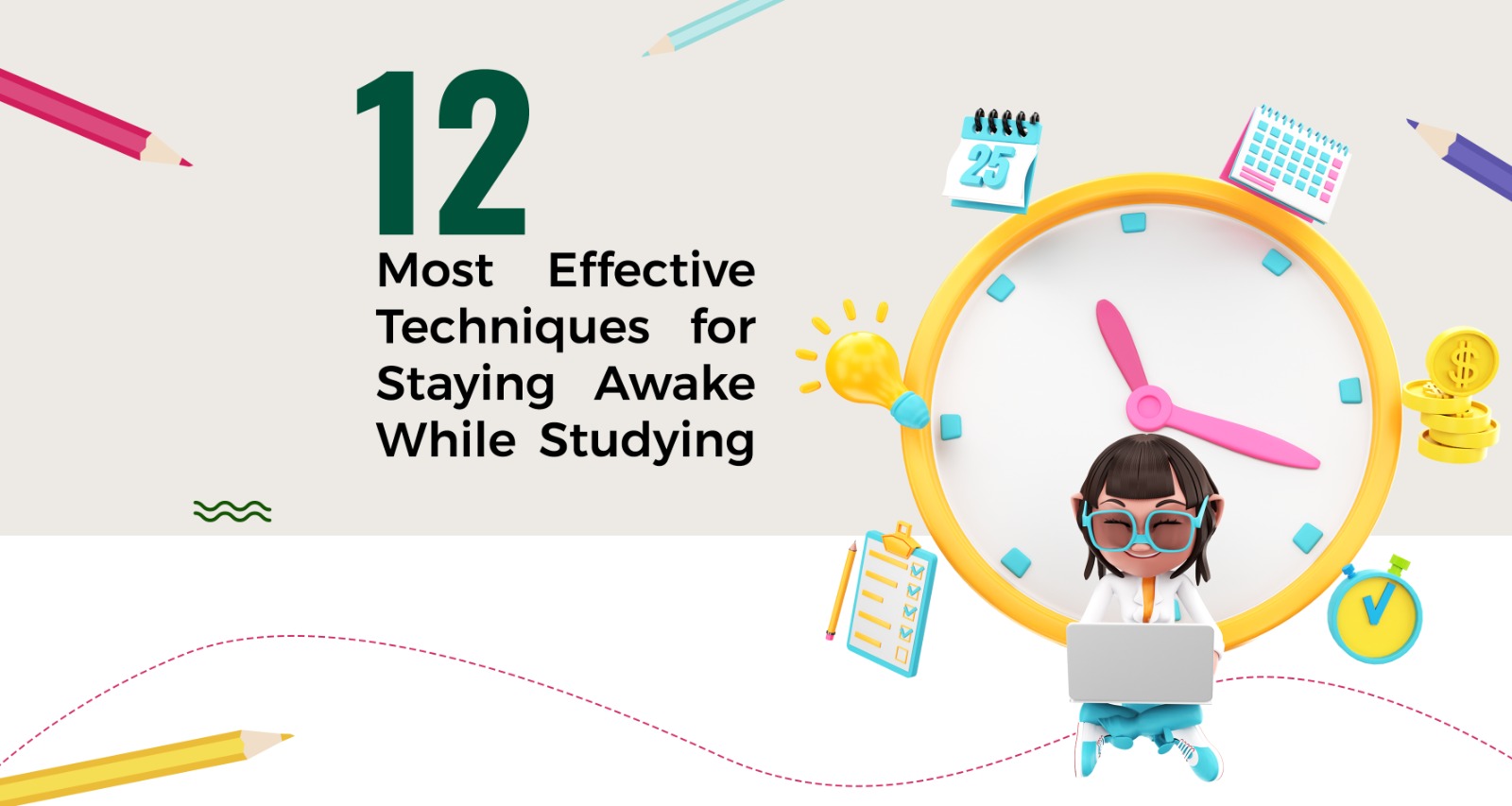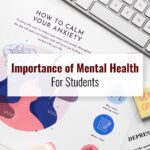
12 Most Effective Techniques for Staying Awake While Studying
Table of Content:
- Introduction
- Effective ways to stay awake while studying
- Conclusion
Introduction:
Staying awake and alert during study sessions is a common challenge for students, especially during late-night study sessions or when facing lengthy assignments. The struggle to combat drowsiness and maintain focus is real, but fear not – there are effective techniques for staying awake while studying. In this blog post, we’ll explore 12 proven strategies to boost wakefulness and productivity.
12 most effective ways to stay awake while studying
1. Strategic Caffeine Intake:
Moderate caffeine consumption can be a powerful ally in your quest to stay awake. Opt for coffee or tea, but be mindful not to overdo it, as excessive caffeine intake can lead to jitteriness and eventual crashes
2. Power Naps:
A short power nap of about 40 minutes is one of the most effective techniques for staying awake while studying. This method can provide a quick energy boost without the grogginess associated with longer naps. Set an alarm to avoid oversleeping and interfering with your regular sleep schedule.
3. Hydration Matters:
Dehydration can contribute to feelings of fatigue. Ensure you stay adequately hydrated by drinking water throughout your study session. Consider keeping a water bottle on hand for easy access.
4. Active Breaks:
Incorporate brief physical activities during study breaks. Stretching, jumping jacks, or a quick walk can increase blood flow, helping to combat lethargy and improve overall alertness.
5. Optimal Lighting:
Bright, natural lighting is essential for alertness. Position yourself near a window or use a well-lit study lamp to minimize eye strain and maintain focus.
6. Mindful Snacking:
Choose snacks that provide sustained energy without causing crashes. Opt for protein-rich snacks like nuts, yogurt, or cheese to keep your blood sugar levels stable.
7. Engage Multiple Senses:
Incorporate different senses to keep your brain active. Utilize colorful notes, listen to instrumental music, or use scented candles to create a stimulating environment.
8. Stay Organized:
A cluttered and disorganized study space can contribute to feelings of overwhelm and fatigue. Keep your study area tidy to promote a sense of order and concentration.
9. Utilize Technology Wisely:
Leverage technology to your advantage. Use apps that promote focus and time management, and explore ambient noise or white noise apps to drown out distractions.
10. Variety in Study Material:
Monotony can lead to boredom and drowsiness. Switch between different subjects or topics to keep your mind engaged and prevent mental fatigue.
11. Practice Mindfulness:
Incorporate mindfulness techniques, such as deep breathing or meditation, to center your thoughts and increase your overall awareness.
12. Social Accountability:
Study with a partner or in a group to maintain accountability. Discussing and explaining concepts to others can help keep your mind active and prevent boredom.
Conclusion:
Staying awake while studying doesn’t have to be an insurmountable challenge. By incorporating these 12 effective techniques into your study routine, you can enhance your alertness, boost productivity, and make the most of your study sessions. Experiment with different strategies to find what works best for you, and remember that a healthy balance of sleep, nutrition, and active breaks is key to long-term academic success.
Also Read: Importance of Mental Health For Students
FAQs:
Q1: Is it okay to rely on energy drinks for staying awake while studying?
While energy drinks may provide a temporary boost, they often contain excessive amounts of caffeine and sugar, leading to crashes. It’s better to opt for healthier alternatives like coffee or tea.
Q2: How long should a power nap be to be effective?
A power nap of 10-20 minutes is ideal. Longer naps may lead to sleep inertia, causing grogginess upon waking.
Q3: Can exercising help with staying awake during study sessions?
Yes, short bursts of physical activity can increase blood flow and help combat drowsiness. Incorporate brief exercises during study breaks.
Q4: What lighting is best for studying?
Natural light is optimal, but if that’s not possible, use bright, cool-toned artificial lighting to mimic natural daylight.
Q5: Are there specific foods that can help with alertness?
Foods rich in protein, such as nuts and yogurt, provide sustained energy and can help combat fatigue.
Q6: Is it better to study in complete silence or with background noise?
It depends on personal preference. Some find background noise, like instrumental music or white noise, helpful for concentration.
Q7: How can I prevent boredom while studying?
Rotate between different subjects or topics, use varied study materials, and incorporate interactive study methods to keep your mind engaged.
Q8: Can lack of sleep be compensated by staying awake with caffeine?
While caffeine can provide a temporary boost, it’s not a substitute for adequate sleep. Prioritize a regular sleep schedule for long-term cognitive health.
 AIR CONDITIONED
AIR CONDITIONED




